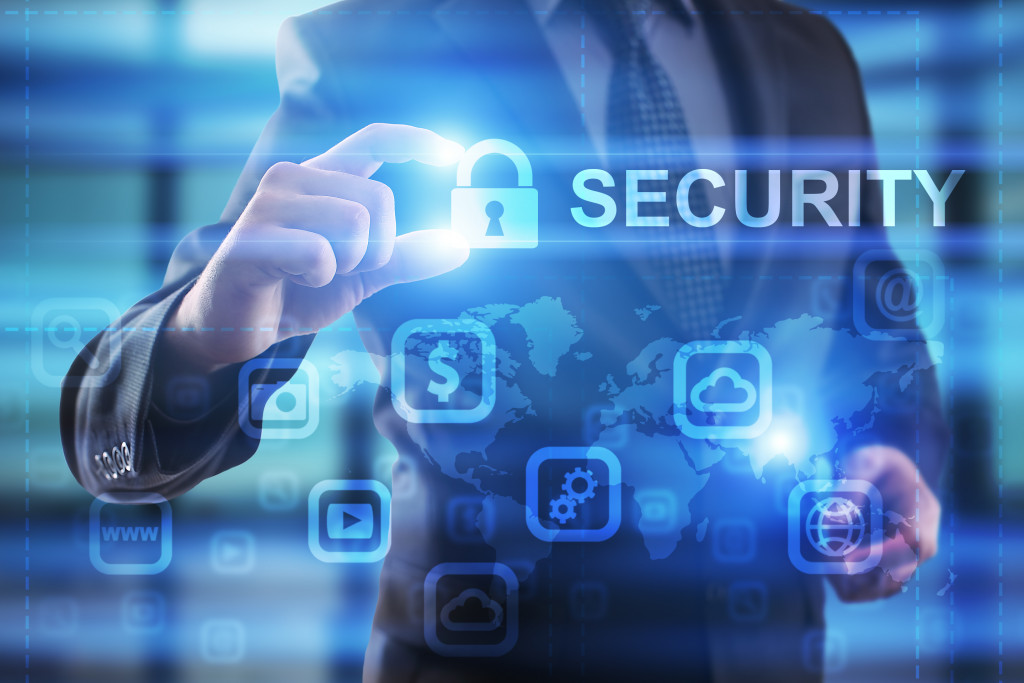If you’re like most business owners, you probably think of cybersecurity as something that only large corporations need to worry about. You may think that your small business is too insignificant to be a target for hackers. Unfortunately, this is not the case. In fact, cybercrime is on the rise, and small businesses are increasingly becoming targets.
What Is Cybersecurity?
Cybersecurity pertains to the security of your company’s electronic information. This includes the data stored on your computers and servers, as well as the confidential information that is transmitted electronically (via email, for example). Cybersecurity also encompasses the security of your website and social media accounts.
Why Is Cybersecurity Important?
There are several reasons why cybersecurity is important:
To protect your customers’ confidential information
If you store your customers’ credit card information, for example, it is important to have strong cybersecurity measures in place to prevent this data from falling into the wrong hands.
Protecting confidential information is crucial to maintaining customer trust. For instance, if you are an analyst for energy procurement, you need to know that the strategies and plans you develop are not being shared with competing organizations.
To prevent data breaches
Data breaches can be extremely costly, both in terms of money and reputation. In 2017, Equifax, one of the three major credit reporting agencies, experienced a data breach that exposed the personal information of 143 million people.
This resulted in Equifax paying out over $700 million in settlements. In addition, the company’s CEO and CIO both resigned in the wake of the incident.
It’s not just large companies that are at risk of data breaches, though. Small businesses are also prime targets for cybercriminals. In fact, 43% of cyber attacks target small businesses.
This is likely because small businesses often don’t have the same cybersecurity measures in place as larger companies. As a result, they can be easier targets for cybercriminals.
To comply with industry regulations
Depending on your industry, there may be certain regulations that you are required to comply with in terms of cybersecurity. To comply with industry regulations, you may need to have certain cybersecurity measures in place. For example, if you are in the healthcare industry, you may be required to comply with HIPAA regulations.
Failing to comply with cybersecurity regulations can result in heavy fines. In some cases, it could even put your business at risk of being shut down.
To protect your company’s financial information
In addition to customer data, your company likely has its own financial information that it needs to protect. This could include things like credit card numbers, bank account information, and payroll information. If this type of data were to fall into the wrong hands, it could be used to commit fraud or identity theft.
To protect your company’s reputation

A cybersecurity breach can damage your company’s reputation. This is because customers may lose trust in your company if they feel that their personal information is not safe. In addition, other businesses may be reluctant to do business with you if they know that you have had a cybersecurity breach.
To protect your employees
Your employees are also at risk if your company’s cybersecurity is not up to par. This is because they could be the victims of phishing attacks or other types of attacks that target your company. In addition, their personal information could be compromised if your company’s cybersecurity is breached.
To protect your bottom line
A cybersecurity breach can also have a negative impact on your bottom line. This is because you may have to pay for damages, such as the cost of repairing any damage that was done to your system. In addition, you may also have to pay for the cost of lost business, such as if you have to shut down your operations for a period of time.
How Can Employers Guarantee The Safety Of Their Data And Operations?
Luckily, there are a number of steps that employers can take to guarantee the safety of their data and operations. Below are three cybersecurity tips for employers:
Educate your employees about cybersecurity threats and how to avoid them.
Employers should educate their employees about cybersecurity threats and how to avoid them. By doing so, employees will be more aware of the dangers that exist and how to protect themselves.
Install cybersecurity software and keep it up-to-date.
Cybersecurity software can help protect your business from a variety of threats. In addition, it is important to keep this software up-to-date in order to ensure that it is effective against the latest threats.
Back up your data.
Backing up your data is important in case of a cybersecurity breach. By doing so, you will be able to restore your data if it is lost or corrupted.
By following these tips, employers can help protect their businesses from cybersecurity threats. In addition, employees should be aware of the dangers that exist and how to protect themselves. By taking these steps, businesses can help keep their data safe and secure.

